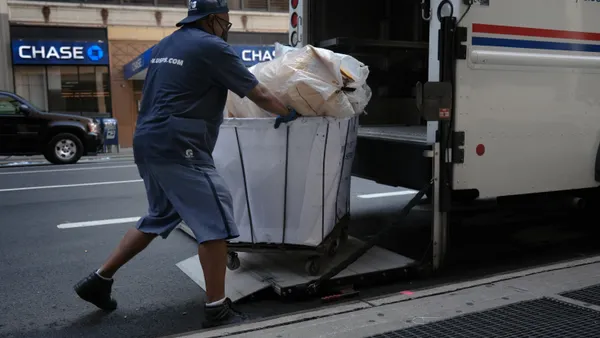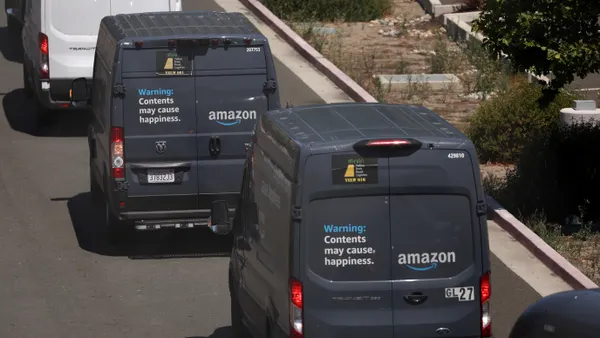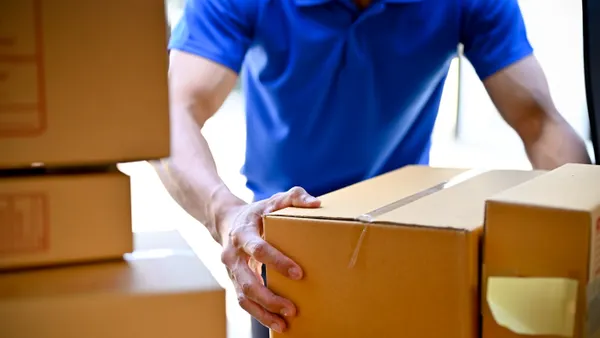Dive Brief:
- Postmates, an app-based delivery service, and Embark, an autonomous trucking company, called for government to invest in "basic infrastructure" rather than chasing the latest Silicon Valley trends at the Global Supply Chain - Future Trends 2019 conference at the U.S. Chamber of Commerce Thursday.
- "Smooth roads, no huge potholes, bridges that aren’t collapsing ... we’re in agreement there’s no need for looking into some of these more experimental technologies at this point," Jonny Morris, the head of public policy at Embark, said. "What we want to see is really strong, traditional high-quality infrastructure."
- Postmates’ Vice President of Public Policy and Strategic Communications Vikram Aiyer called needed improvements "unsexy and wonkish" but emphasized foundational infrastructure improvements are necessary to ensure the investments made today aren’t obsolete by tomorrow.
Dive Insight:
As high-tech investments like autonomous trucks and delivery robots become cheaper, supply chain managers will have to be prepared for more vehicles on highways, city roads and sidewalks — something that is already exacerbating existing congestion and last-mile delivery issues. Sound infrastructure will be necessary to handle the large volume of trucks on the roads — driverless or not.
Greg Hastings, an associate partner at McKinsey & Company, said short, disruptive planning cycles that make startups and their supply chains so successful are often out of step with city and federal governments' five- to 25-year planning timelines. Therefore, it is critical to look at what investments are needed with a long view. "The strategy is making the long term investments that will give us the flexibility to make ‘no regrets’ investments as new technologies come up and get incorporated," said Hastings.
Aiyer said in addition to making "no regrets" bets on basic physical infrastructure safety and quality that will allow innovative supply chains to thrive, making sure the groundwork for broadband and 5G digital infrastructure will be crucial.
"When you’re talking about hyper-localized commerce," he said, "that point of sale interaction can mean the difference between a sale and something getting lost in the wires ... if specific standards can be set around IoT communications I think that will go a long way."














